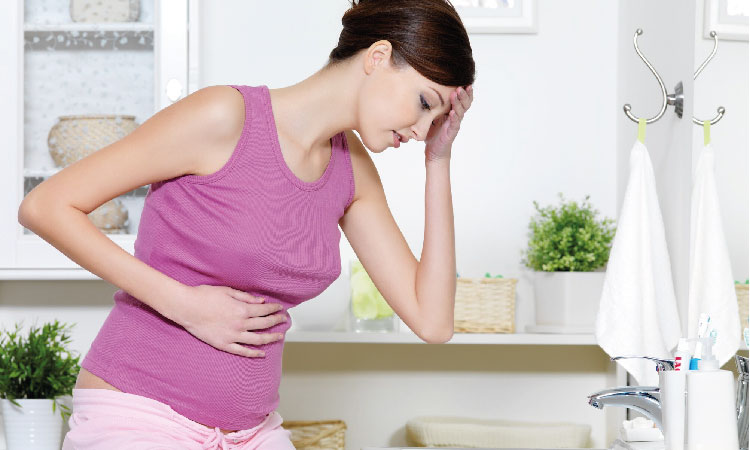A child’s birth is a miraculous event. The postpartum period is a time of great happiness for mothers, but it also comes with its share of discomfort. One such issue is postpartum constipation. It’s a topic seldom discussed openly, yet it’s a reality for many new mothers. According to a study, 36 percent of women experience constipation in the third trimester and 44 percent in the second.
Following vaginal delivery, the likelihood of constipation rises to 47%, and up to 57% of women who underwent cesarean delivery reported experiencing gastrointestinal issues and constipation. Postpartum constipation is, therefore, a common problem. Therefore, if you have painful bowel movements after childbirth, you are not alone. In most cases, however, this is not a serious problem. Most symptoms are transient and easily manageable.
What Causes Postpartum Constipation?
It is not possible to pinpoint a specific cause for constipation after delivery. Apart from hormonal changes and lifestyle changes, many physical factors can also contribute to them.
Postpartum constipation is most likely caused by one or a combination of the following factors:
1. Reduced physical activity
Numerous women may encounter restrictions on mobility or are advised to engage in limited physical activity following delivery, leading to a decline in overall levels of physical exercise. Engaging in regular physical exercise has been shown to have positive effects on bowel function, whereas a lack of physical activity may contribute to the development of constipation.
Several studies have shown that reduced physical activity following delivery contributes to constipation in the postpartum period.
Related Reading: What Is The ‘Golden Hour’ After Birth And Why Is It So Important?
2. Anal injury during labor and delivery
Birth trauma to the anal sphincter may cause postpartum constipation. Obstetric anal sphincter injuries (OASIS) are one of the complications of vaginal birth. A third- or fourth-degree laceration of the perineum is another name for this condition.
Such injuries affect the anal sphincter complex. It may also affect the anal mucosa in extreme cases1. Constipation develops when new mothers ignore their bowel movements out of fear of the excruciating pain associated with defecation.
3. Forceps delivery or episiotomy
When labor becomes difficult and the baby requires help being delivered, a medical procedure called forceps delivery is performed. This may cause short-term alterations to the muscles and tissues of the pelvic floor. Having trouble going to the toilet can happen temporarily because of these changes.
A surgical incision performed to widen the vaginal opening during delivery is called an episiotomy. Women who had episiotomies frequently experienced constipation because the pain and discomfort of an episiotomy often made it difficult for women to have regular bowel movements.
4. C-section
Pain, inactivity, and medications taken before, during, and after a cesarean section all increase a woman’s risk of constipation in the days and weeks following the surgery. After surgery, the movement of the gastrointestinal tract may be significantly reduced, resulting in a delay in bowel movements2.
This may lead to stools that are dry and difficult to pass. Therefore, blood in the stool after a c-section is not an uncommon event.
Medications, such as opioids, prescribed after a C-section to manage postoperative pain can slow down the digestive system, potentially leading to constipation. In addition, a C-section can cause abdominal pain and discomfort, making it difficult for the new mother to move around. This can limit walking and other physical activities, which stimulate bowel movements. This hardens the stool and increases constipation.
5. Extended hospitalization
Even if they do not have a cesarean section, there are still plenty of reasons why mothers might need to spend a long time in the hospital after giving birth. Constipation can occur if you eat less, consume fewer fiber-rich foods, drink too little water, or stay in bed for too long.
Related Reading: 11 Tips To Cope With Postpartum Sleep Deprivation
6. Certain medications
Some medications used after delivery, such as painkillers or iron supplements, can cause constipation. Some narcotics, also known as opioid pain relievers, can slow the passage of stool through the bowel.
Because the bowel has more time to absorb the water, the stool becomes dry, hard, and difficult to pass3. This will lead to constipation. Similarly, new mothers often receive iron supplements to treat postpartum anemia. Constipation is a common side effect of iron supplements4.
7. Disruption of bowel rhythm
The body has a natural bowel rhythm. Any disruption to this rhythm can contribute to constipation5. The new mother’s attention will naturally be diverted to her infant during the initial days. It will disrupt the rhythm, causing constipation. In addition, new mothers frequently ignore their urge to poop in order to meet the demands of their infants. If you fight off nature’s signals and hold them in, you may find it difficult to relieve yourself when nature calls.
8. Haemorrhoids
A hemorrhoid is an enlarged vein in the rectum that causes discomfort. Many women experience hemorrhoids following childbirth, and this is especially common following a vaginal delivery6.
The presence of hemorrhoids can make bowel movements painful. It is possible for the mother to develop constipation if she resists the urge to defecate because she is afraid of the pain.
What Are The Symptoms Of Postpartum Constipation?

Many new mothers struggle with constipation in the weeks and even months following childbirth. It can be uncomfortable and even painful at times. Depending on the underlying cause, postpartum constipation symptoms and their severity can vary among new mothers. Many new mothers experience one or many of the following postpartum constipation symptoms7:
- Notable decrease in the frequency of bowel movement: One of the most common signs of postpartum constipation is a noticeable drop in how often one has to go to the toilet. The new moms might not be going to the toilet as often as they did before. Sometimes it gets reduced to three bowel movements or less a week
- Excessive strain during bowel movements: This is a classic symptom of constipation. One may have to put more strain and effort into bowel movements than usual
- Feeling like your bowel is not empty even after you poop: Even after a bowel movement, you may feel like you haven’t completely emptied your bowels. The gas you pass may have an unpleasant odor due to the buildup of stool in the intestines
- Pain in the rectal area: Pain or discomfort in the rectal area can be a sign of constipation. It is common to see drops of blood in stool during constipation
- Abdominal pain: Constipation also brings aboutabdominal discomfort, bloating, or cramping, which can be uncomfortable and distressing. The stools turns, hard, dry, or lumpy
Related Reading: 6 Traditional Post-Delivery Drinks That Help
What Helps With Postpartum Constipation?
Postpartum constipation can be uncomfortable and distressing, but there are several strategies and remedies that can help alleviate this issue. There are several effective remedies for postpartum constipation that can be done at home. This problem will be resolved quickly if the right actions are taken, including receiving postpartum constipation treatment if necessary.
Here are some tried-and-true methods for relieving constipation after giving birth:
- Load your plate with high-fiber foods for pregnancy constipation. Fibre helps to give bulk to stool and encourages regular bowel movements thereby helping to alleviate constipation.
- Drink plenty of water. Staying well-hydrated is essential for softening the stool, making it easier to pass. Aim for at least eight glasses of water per day, and more if you’re breastfeeding.
- Milk of Magnesia, or magnesium hydroxide, is a traditional laxative used to treat constipation. It is an over-the-counter medicine. Short-term use of milk of magnesia after birth will help to relieve constipation.
- If you’re taking pain medication after childbirth, it can contribute to constipation. Gradually wean off these medications as advised by your healthcare provider.
- The use of pain medication following childbirth may potentially exacerbate constipation. Wean off these medications gradually in accordance with your healthcare provider’s instructions.
- According to our panel gynaecologist Dr Ankita Patel Tayal, in women with vaginal tears, the recommendation is to use a stool softener and an osmotic laxative for around 10 days after delivery. Stool softeners can be helpful in making your stool softer and easier to pass. However, as you are breastfeeding your baby, never take any medication without consulting your doctor.
- If you’re unable to meet your fiber needs through your diet alone, you can rely on fiber supplements like psyllium husk or methylcellulose after talking to your doctor.
Related Reading: 12 Foods To Increase Breastmilk Supply In New Moms
How Long Does Postpartum Constipation Last?
The duration of postpartum constipation varies among individuals, and numerous factors can influence its duration. For instance, the method of childbirth, such as a cesarean section (c-section), can extend the period of constipation due to the surgical procedure’s impact on the digestive system. The overall health, diet, and activity level of a person also contribute to the duration of postpartum constipation.
Typically, this condition is most prevalent in the initial few days following childbirth. However, it frequently persists for three to six months. In extreme cases, some women have reported experiencing postpartum constipation for up to twelve months.
Given the considerable variability in the potential timeframe, it is advisable to consult a medical professional if your symptoms persist for more than a week or so.
Does Breastfeeding Help With Constipation?

Even though some women experience postpartum constipation while breastfeeding, this does not necessarily mean that breastfeeding is a factor in causing the condition. While breastfeeding is not the direct cause of constipation, it does bring about a number of changes that could lead to the condition. If a breastfeeding mother is not getting enough fluids, for instance, she may become dehydrated, which in turn may cause constipation. Otherwise, breastfeeding is unrelated to postpartum bowel problems.
Conclusion
Dr Ankita Patel Tayal, MD OBGYN says that postpartum constipation is a preventable complication with proper education early in the patient’s stay. Prevention is superior to treating the problem once it has already occurred. The provision of structured education about laxatives, diet, and exercise from the healthcare provider has the potential to decrease prevalence of constipation in the postpartum period.
Your body is still undergoing miraculous changes after giving birth, just as it did while you were pregnant. As you know, things don’t bounce back just because you’ve given birth. You are still in the healing and recuperation phase. Some of the factors that can lead to postpartum constipation resolve on their own. Some will require treatment to solve the underlying cause. In either case, it is just a question of time.


